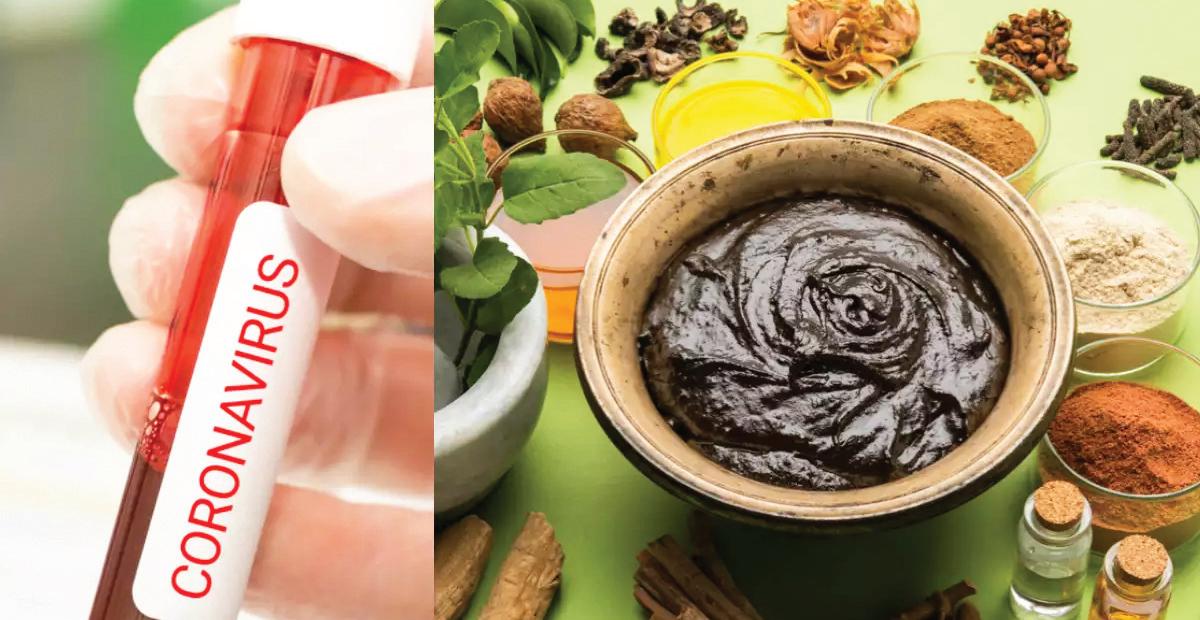
4 minute read
TREATING LONG COVID WITH AYURVEDA
from 11 April 2023_
Even as the world gets into recovery mode post-pandemic, many people are still grappling with the symptoms of long Covid. According to the WHO, if you have recovered from Covid-19 but some symptoms stay stubborn, such as shortness of breath, brain fog, and fatigue, the condition is known as long Covid. Long Covid symptoms also include palpitations, insomnia, gastric problems such as bloating, acidity, irritable bowel, muscle weakness, and mobility issues.
Any microbe that enters the body causes toxicity, resulting in the imbalance of Doshas or bio-energies of one's body. Our bodies are prone to infectious diseases when we have a weak immune system, and Panchakarma along with other curative Ayurveda treatments helps to strengthen the immune system. In Ayurveda, the Panchakarma procedure is used as a prophylactic to prevent infectious diseases and incidentally can also help to prevent a relapse.
Advertisement
In the case of a Covid patient who has tested negative for the virus, the Vaidyas (doctors) at CGH Earth recommends the Panchakarma procedure to strengthen and fortify the body. However, such procedures cannot be administered soon after recovery, though other Ayurvedic treatments for insomnia, anxiety, stress-related disorders, and immune boosting can be done.
To do the Panchakarma cleansing procedures, it is recommended to allow the body to heal itself -- for up to say two months in order for the energy levels to get back to normal or near normal. This is the same recommendation that Ayurveda would give for a person who has undergone surgery or some serious illness; a gap of two or three months before undergoing the Panchakarma.
Meanwhile, the degree of long Covid symptoms varies from patient to patient and therefore the treatment protocols vary as well. The doctor will need to watch and assess when the patient is ready to undergo only one or multiple karmas which are part of the Panchakarma procedure. Long Covid patients suffer from respiratory problems and also issues related to the gastrointestinal (GI) tract, cardiac-related conditions, neurological conditions, and brain and kidney issues. Covid also affects the sense organs wherein some people lose their sense of smell, taste, hearing, and vision for an extended period of time. Many, post Covid suffer from insomnia, brain fog, and anxiety.
Although Panchakarma has immense health benefits, it is critical that for post-Covid patients the energy level is checked prior to putting them on any treatments, as they are tiring processes that do initially lower one's energy. Panchakarma procedures include detoxification of the body. This is a necessary stage of treatment as the diseasecausing microbes bring a lot of toxins into the body and if they remain in the body, Ayurvedic treatments cannot address the conditions that have manifested internally.
For Kapha-related lung infections, chest pain, and infected pleural cavities the patient is treated with Herbal drug-induced vomiting or Vamana (one of the deep cleansing Panchakarma procedures). Likewise for gastric infection or if the liver or pancreas is affected purgation is advised. Meanwhile, the main procedure for problems related to sensory organs like loss of smell or taste is Nasyai.e: nasal treatment.
For those affected by arthritis, degenerating muscles, or skin lesions; Vasti or medicated enemas are prescribed. It is to be noted that this is not merely Colon cleansing but the administration of special medicines into the colon and rectum where the medications in them are easily absorbed internally.

Alongside the Panchakarma procedures, secondary treatments or "Upakarmas" are also administered to the patients. "Tharpanam" which is administered for the eyes and "Karnapuranam" for the ears are treatments that Ayurveda prescribes for patients who have long Covid conditions related to these sensory organs. Treatments like "Njavarakizhi" and "Pizhichil" also aid in correcting the Vata, Pitta, and Kapha imbalances and help rejuvenate and rebuild the body from the inside out.
Herbal medications are administered to improve the immune system. In particular, those with respiratory tract issues benefit from these prescribed herbal medicines by improving their lung capacity and removal of excess accumulation of phlegm or fibroids.
There is no doubt that in today's world, with creative brains and technology, you can dine in or out, or even host guests at the convenience of consumers, resulting in a market swamped with new restaurants. Handin-hand, there is a huge demand for people who can write genuine reviews about these restaurants, their food, and their experience. As a result, several food bloggers who have made a reputation for themselves and have a large number of followers on social media are invited numerous times per week or sometimes multiple times per day.
But have you ever considered what overeating or an unhealthy diet plan can lead to?
Speaking on how to remain healthy while food blogging or vlogging, NeetikaLigga, a food content creator at Moj, says: "As a food enthusiast, I revel in the art of cooking and restaurant reviewing almost every week. However, indulging in outside food regularly can take a toll on one's health. While I don't follow any diet trend, I prioritize portion control both when cooking and reviewing restaurants. "Typically, when I review a restaurant or food vendor, or cook, I am in the company of friends and family, which means I am not solely responsible for consuming all the food. In the rare instance that I am alone, I request smaller portions from the restaurant or food vendor to prevent waste and overindulgence. "Additionally, I make sure to incorporate high-intensity workouts or at least go for a walk to maintain an active lifestyle. Finding the right balance is crucial for enjoying our favourite foods and indulgences while still practicing portion control and savouring every bite without any guilt. "
MehezabinDordi, Clinical Psychologist at Sir HN Reliance Foundation Hospital, recommends some additional guidelines for staying healthy when making food content on social media:

Plan your own meals in advance: Planning your meals in advance can help you make healthier choices and avoid the temptation to snack on unhealthy foods while creating content. Being mindful of your consumption: being aware of your food and being mindful is a very important component of wellness.
Try to Incorporate healthy ingredients: When creating recipes, try to incorporate healthy ingredients to have more balance in the food you eat. Practice portion control: Be mindful of portion sizes when creating and serving food content. Even the best food eaten in excess can be harmful. Avoid overeating or indulging in excess amounts of sugary or processed foods. Stay hydrated: Drink plenty of water throughout the day to stay hydrated and keep your energy levels up. Take breaks: It's important to take regular breaks while creating content to avoid burnout and reduce stress. Use your breaks to stretch, meditate, or take a walk.








